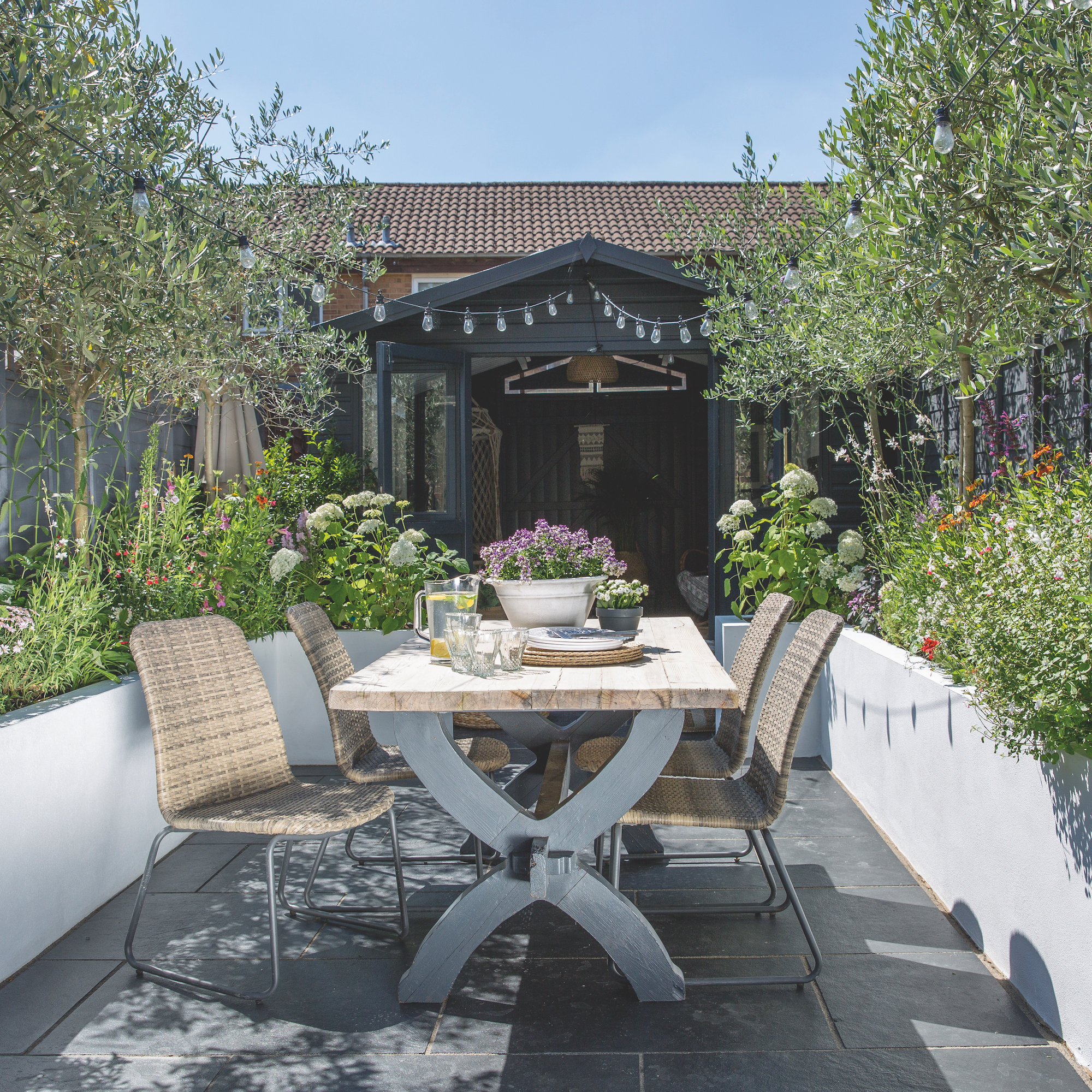
Knowing how to make a small outdoor dining space feel bigger is that little touch of magic that can turn a small garden into your al fresco dining oasis. Honestly, is there anything better than dining outdoors when it's sunny? However, you might not feel like this if your outdoor dining space feels more cramped than welcoming.
Thankfully there are many ways to adjust your small garden ideas to make your outdoor dining space feel bigger. Whether you’re looking to host friends and family for a special occasion, relax at the end of a long day or enjoy your morning coffee, the experts have shared their favourite ideas.
From garden table ideas that work best in compact spaces to the best garden furniture to use and where to place it, you’ll be enjoying a meal or gathering outside in no time.
How to make a small outdoor dining space feel bigger
1. Use multipurpose furniture

As with other areas of our home, where we’re short on space, choosing multipurpose furniture is key. ‘Benches with built-in storage or tables that extend to accommodate extra guests are excellent options for small outdoor dining spaces,’ recommends Jeannette Hudson, Furniture Expert at Online Sofa Shop.
While Cassandra Leisz, Senior Creative Director at Ruggable, suggests ‘outdoor coffee tables can offer great storage solutions, and garden stools can be moved around between different zones for additional seating.’ This saves you trying to cram too many items of furniture into a small or enclosed space.
2. Opt for folding furniture
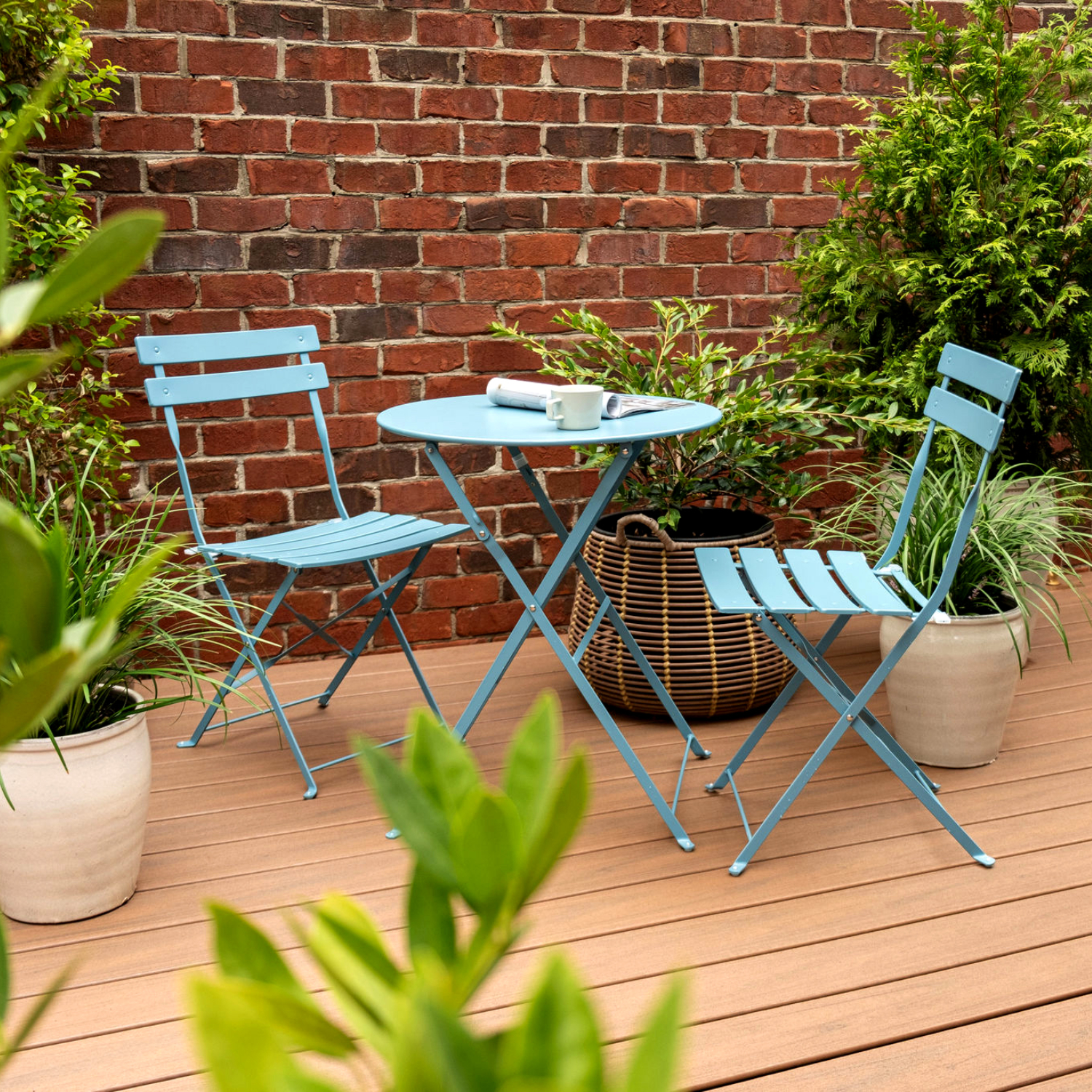
Alternatively, if you are only working with small patio ideas or a balcony, ‘look for pieces that can be easily folded or stacked when not in use to maximise flexibility,’ Jeannette affirms. You can even get outdoor dining tables which extend to accommodate extra guests as and when you need to.
3. Be strategic with placement

‘Whatever the size of your outdoor space, take a good look at your patio and consider its size, shape, existing features, and any limitations,’ Cassandra outlines. ‘This will help you plan exactly what you're working with.’
And being strategic with where you place certain items of furniture can work wonders at making a small dining area feel bigger. Choosing lightweight outdoor furniture will also help you to move things around easily.
4. Keep it light and bright
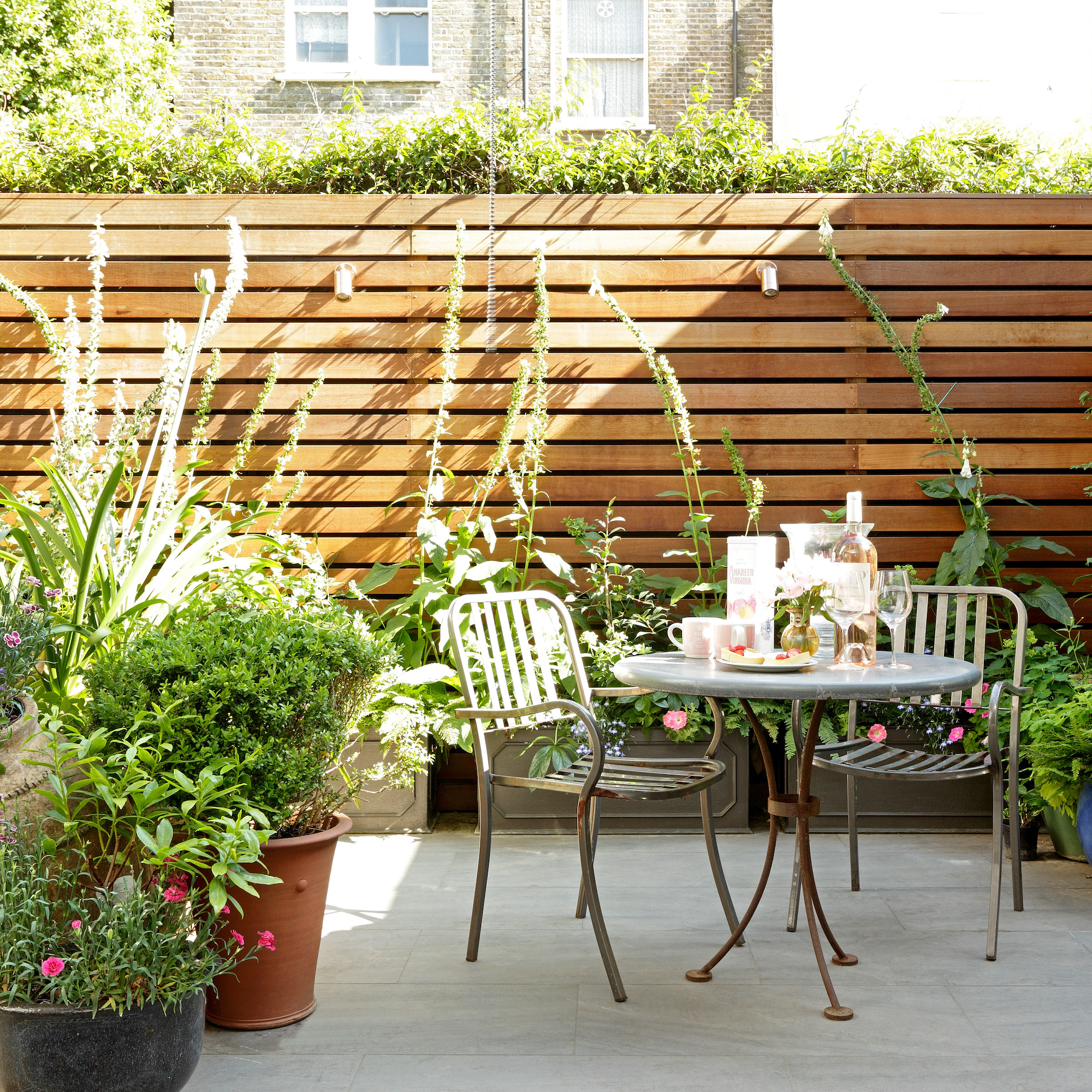
‘When your outdoor dining area is small, it’s best to go with light colours to keep the space feeling airy,’ says Fiona Jenkins, Gardening Expert at MyJobQuote.co.uk. Whites, creams and light grey hues are all great options ‘but bright, cheery colours work just as well,’ Fiona continues.
‘Using light, neutral colours (with a few colourful accents) on the furniture, upholstery, walls or fences surrounding your dining area can create the illusion of more space, reflecting natural light to create an airy feel,’ Nicolene Mausenbaum, Interior Designer and Founder of Dezyna Interiors, concurs.
5. Opt for a round table
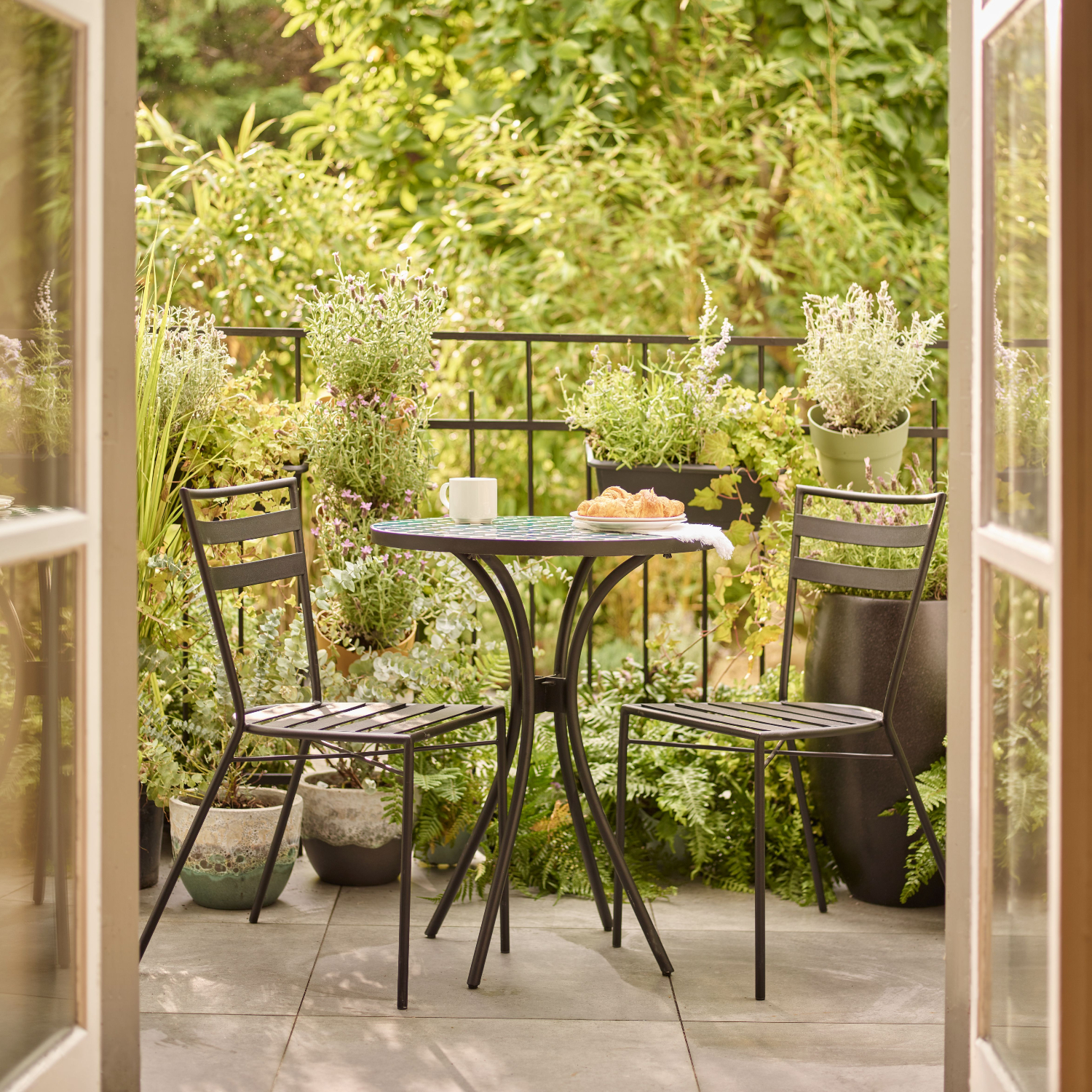
The dining table that you choose is arguably the most important element in an outdoor dining area. But if you’re really short on space, a rectangular table can take up a significant amount of the area that you do have available to you. Whereas ‘a round table ensures that a space feels bigger than it actually is,’ say Sarah and Sally Wilkie, Founders of Home Barn. ‘Taking up less space, the less angular lines give a more flowing, fluid look.’
A round table also works particularly well as part of a small patio, balcony or front garden idea where you can only fit a couple of chairs. Keep an eye out for bistro sets like the John Lewis Anyday version for £95. They typically come with a round table and chairs that were designed with smaller spaces in mind. A bistro set also allows you to ‘create an ‘intimate alfresco dining space that’s perfect for romantic evenings out in the garden,’ according to Bridgman’s Brand Manager, Caron Grant.
6. Create visual interest
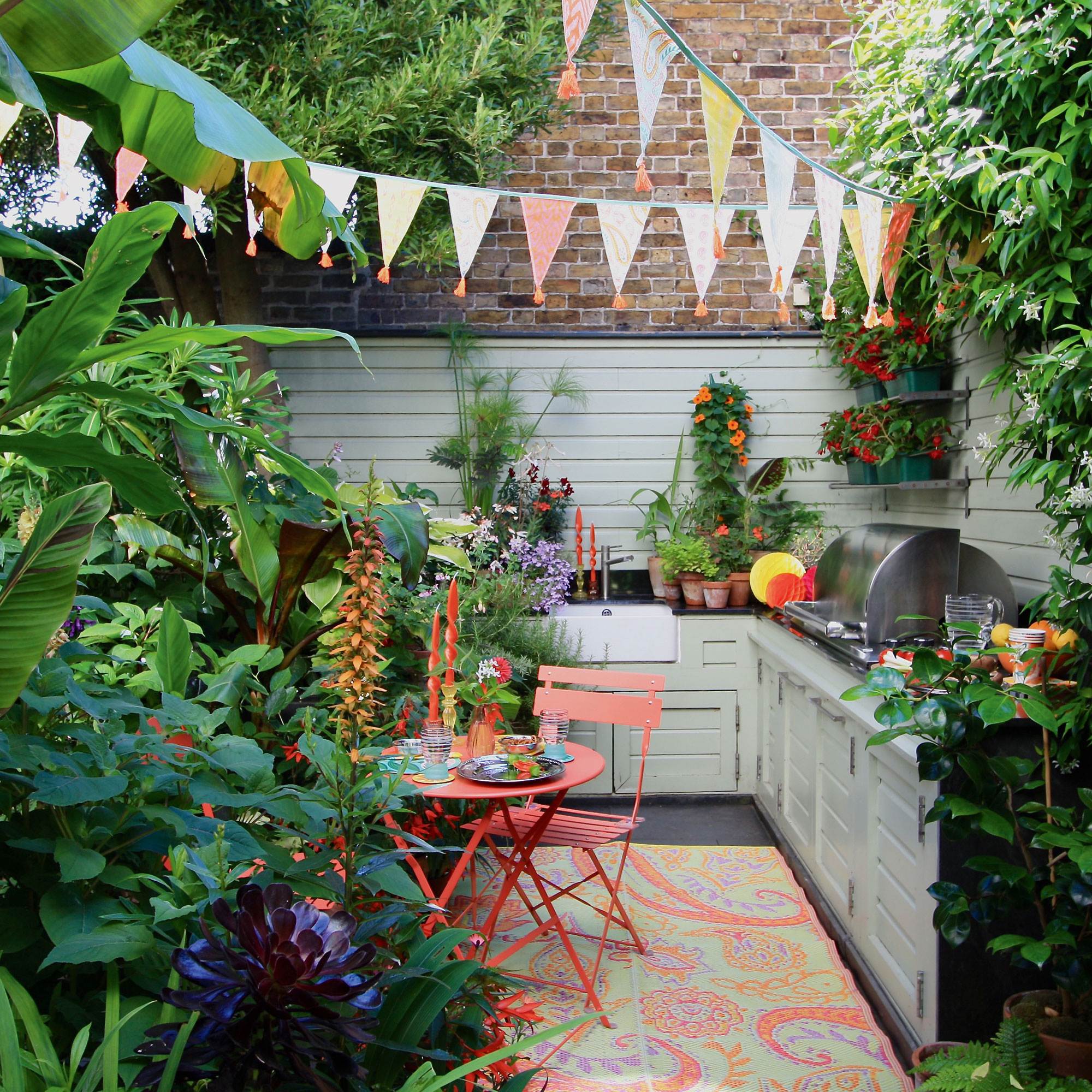
Adding texture and depth to your outdoor dining area can make it feel more inviting, which is where accessorising comes into play. ‘Outdoor rugs, cushions, and throws can provide warmth and cosiness without overwhelming the space,’ Jeannette declares.
‘Well-placed accents can also create optical illusions that will make your patio look more exciting and more spacious,’ Caron maintains. For example, hanging a mirror can reflect light to create the appearance of more room.
7. Utilise vertical space
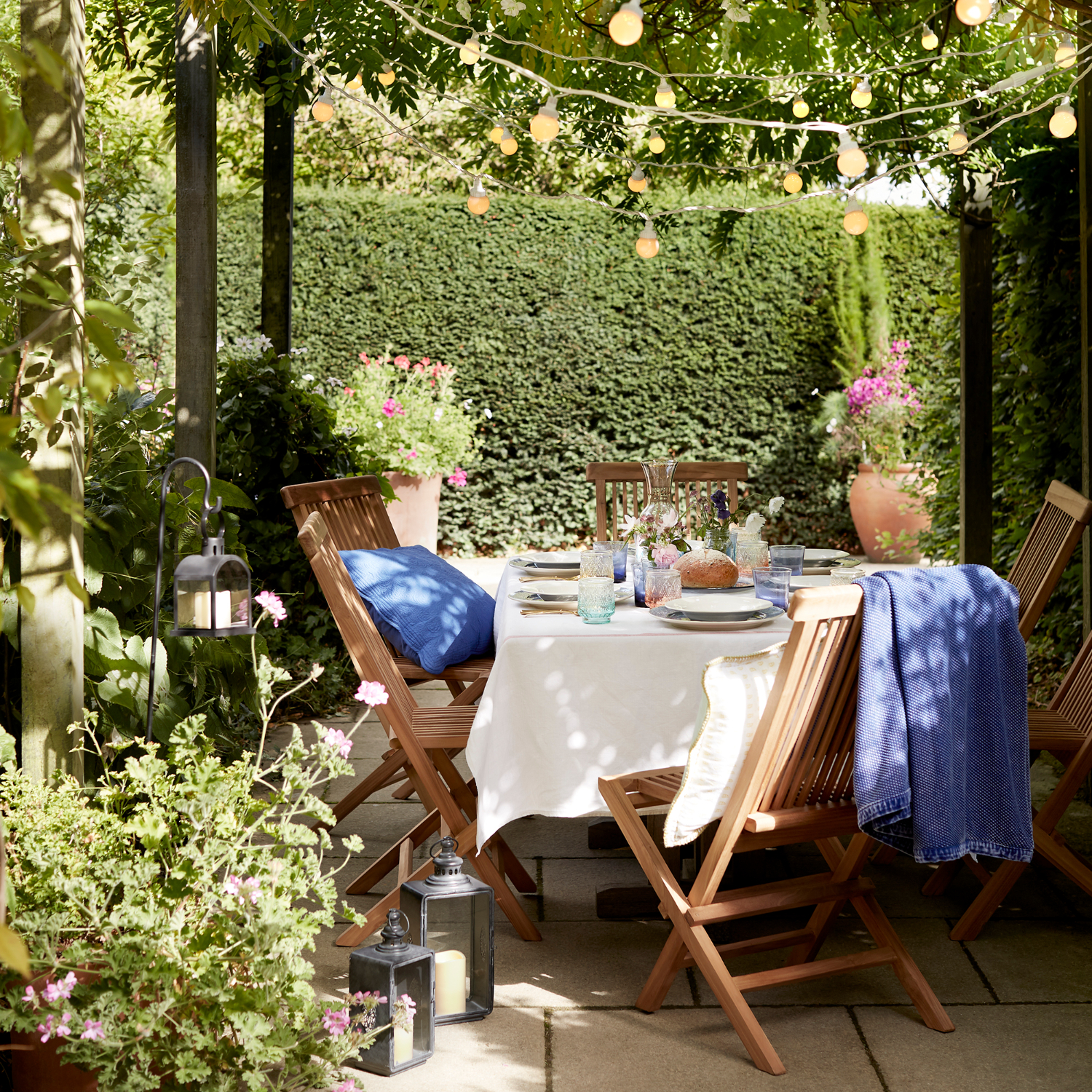
When floor space is limited, you’ll want to turn your attention upward. Jeannette admits, ‘hanging plants, lights, or decorative elements from overhead structures can draw the eye upward and make the space feel larger.’
You could even introduce a living wall idea, flowering trellis or engage in a spot of vertical gardening to add some greenery. Doing so has the added benefit of ‘helping to keep plants away from the floor, saving you precious flooring space,’ explains Steve Chilton, Garden Expert at LeisureBench.
8. Consider your lighting

Garden lighting ideas, when used correctly, can transform a space. Fiona recommends ‘using lights that have a soft warm glow for a cosy feel but mixing up your lighting sources to add depth,’ to an outdoor dining space.
‘This could be a combination of overhead festoon lights, lanterns dotted around the area and stake lights further out into the garden,’ she continues. But whatever you choose should allow you to seamlessly transition from day to night as you enjoy dinners, drinks and catching up with loved ones.
9. Embrace natural light
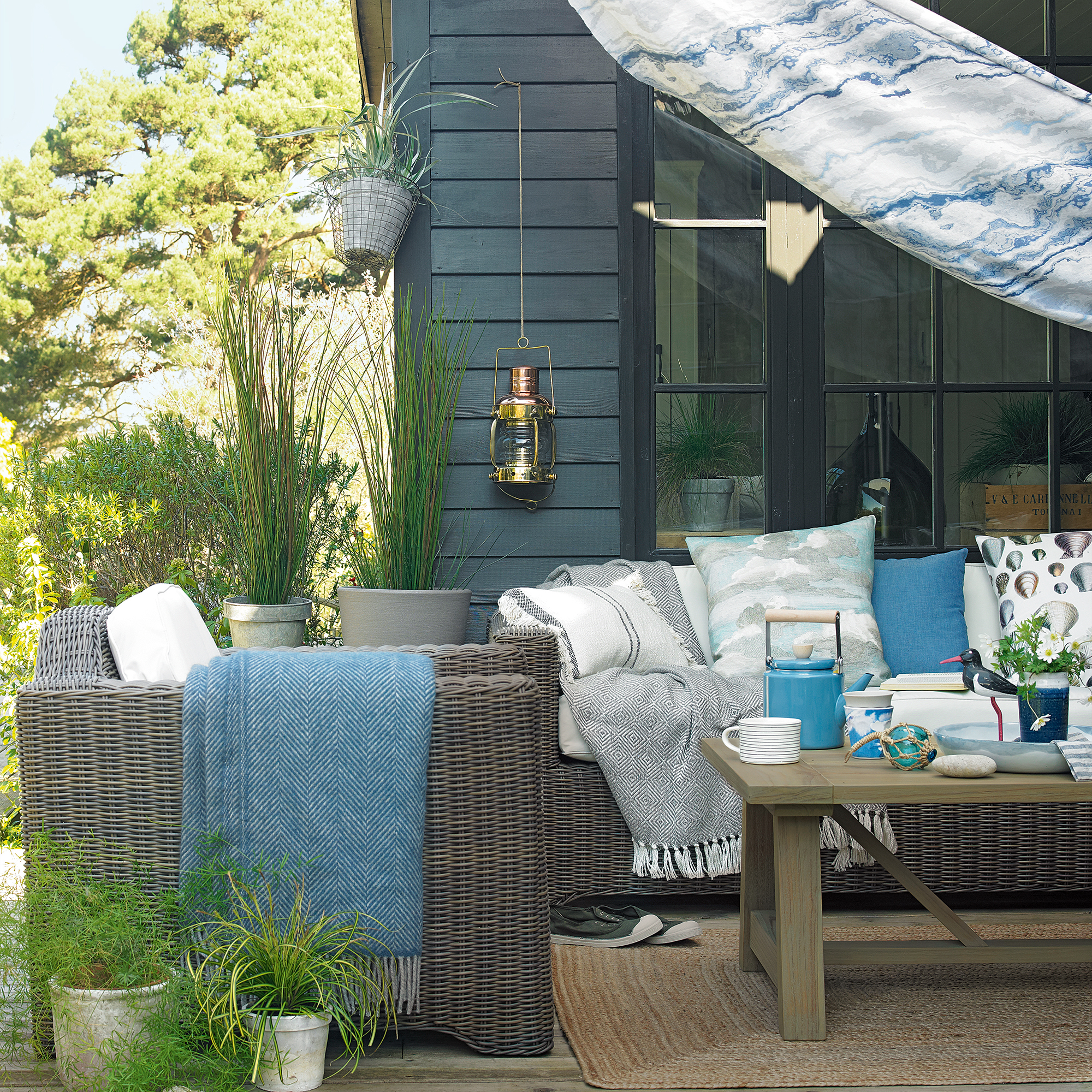
It’s also important not to forget about natural light either. Often our outdoor dining space can be situated in a corner, which can lead to it being overlooked by fences, trees or foliage. So, it’s important to keep hedges and trees trimmed back, where possible, to let that natural light get through.
Since ‘maximising natural light is key to making any space feel larger, keep sightlines open. Sheer curtains or shades can also provide privacy without blocking out precious light,’ Jeannette adds.
10. Avoid clutter
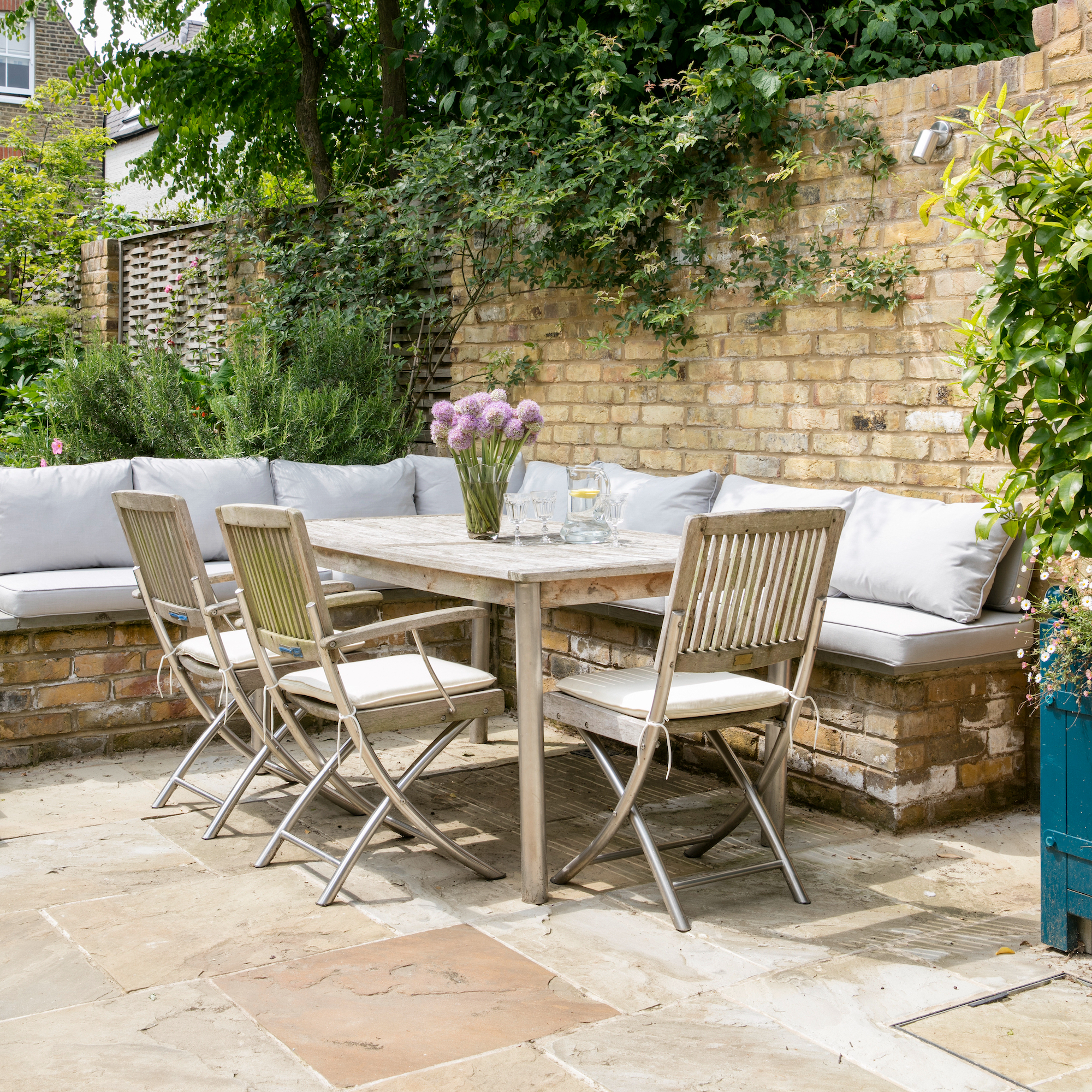
Less is definitely more in a small outdoor dining space. Having too many items of furniture crammed into a small space can overcrowd the area and make it difficult to sit back and relax. On the other hand, over-accessorising can make the space feel hectic and cluttered. So, it’s important to get the balance correct.
‘When designing your space, remember at all times to keep the design simple and uncluttered but balanced with just the right amount of pattern and colour. Though essential, decorative accessories need to be placed with consideration, particularly in small spaces,’ Nicolene agrees.
FAQs
Which materials are best for an outdoor dining space?
As your outdoor furniture will be exposed to the elements and a slew of different weather conditions, you’ll want to ensure that you choose the right materials when you go shopping. Reilly Gray, Co-Founder of Suns Lifestyle, advocates for ‘for designs made from high-quality rust-proof aluminium and teak.’ These materials will not only withstand the change in weather conditions but will also last you many years to come.
If you add a rug to your outdoor dining space, ‘it’s important to choose a waterproof and washable rug that can withstand exposure to sunlight, moisture, and any food or gardening messes,’ Cassandra warns.
How can you add privacy to a small outdoor dining space?
There are a number of small garden screening ideas to help make your outdoor dining space more private, without making the space feel even more closed in.
‘An umbrella, canopy and pergola over your dining area can also be a practical way to provide privacy and shade for sunny days,’ Cassandra concludes. They can also have the added benefit of protecting you from the elements too.
Where you place your furniture and decor can help to create cosy nooks and shield your dining area from prying eyes. And don’t discount what can be achieved with a handful of plants. ‘Tall planters filled with lush foliage can provide privacy while adding beauty and greenery to the space,’ Jeanette argues.







